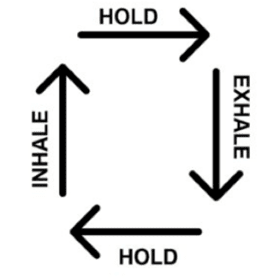/ News Posts / 4 Strategies to Increase Your Emotional Intelligence
4 Strategies to Increase Your Emotional Intelligence
By NAfME Member Jen Rafferty
As music teachers, we have access to a fast-track of social emotional learning for our students. Just like our own musicianship, emotional intelligence (EI) is a skillset that takes lots and lots of practice. The four pillars of Emotional Intelligence as outlined by Dan Goleman, author of Emotional Intelligence: Why It Can Matter More than IQ, are self-awareness, self-management, social awareness, and social management. These also mirror the CASEL SEL standards that many schools have adopted (although the standards include responsible decision making as well).
With all of the focus on our students, it seems easy to forget that the teachers play an important role in modeling high EI. If you’re being honest with yourself, how often do you practice to improve your own emotional intelligence? Here are four practical strategies to help give you a boost:
#1 Listen to Your Body (Self-Awareness)
Your body speaks to you all the time. The trouble is, we are often terrible listeners! Our body screams at us to pay attention, it tells us when something feels “off,” and it begs us to slow down. Often, we just push through and carry on—because that’s what we’re “supposed to do.” Where does this lead us? Exhaustion, frustration, or feelings of overwhelm. Sometimes we even get sick, and if you’re me, your back goes out! That is your body telling you to STOP and take note—something is not right.
Self-awareness is about paying attention to YOU! But, how do we do this when we have a job to do? First, understand the physical symptoms of stress, overwhelm, anxiety, and frustration. Your body may tense up. You may notice a tightness in your chest, shortness of breath, or even a headache. Once you notice your body reacting to stress and become more self-aware, you have agency to make a new conscious choice in how you respond. You can’t change what you don’t notice, so keep strengthening that “notice muscle.” Once you recognize that your nervous system is activated, you have a choice to give it the safety it needs.
#2 Breathe (Self-Regulation)
These physical symptoms are a result of an overload of cortisol (the stress hormone) which sends a signal to your brain to go into fight, flight, or freeze. When this happens, you don’t have access to the part of your brain that you need for problem solving, creativity, organizing, prioritizing, and other higher executive functions. When you begin to notice stress in your body, you then have agency to calm it down.
One of the ways to do this is by breathing on purpose. Use the box breath image below as a guide: inhale for four, gently hold for four, exhale for four, and gently hold for four. Repeat this three times and notice again, how does your body feel? More relaxed? Focused? Calmer? This exercise brings your nervous system back to a parasympathetic nervous state where you can actually make conscious choices and respond (instead of react) to the situation around you. Check in with yourself throughout the day with this breathing exercise and notice how your body is feeling. It is a tool that is available to you all the time, so use it as often as you need to!
#3 Check Your Opinions (Social-Awareness)
Our ego loves to have opinions, but being emotionally intelligent means setting your judgment aside and replacing it with curiosity. As soon as you catch yourself in judgment, notice it, and replace it with “isn’t that interesting?” Get curious about what is causing you to feel judgmental. Curiosity and judgment cannot exist in the same space. Often, our ego just wants us to be right. But, the good news is, you are not your ego. The truth is, underneath the ego, and underneath the judgment of others, is actually self-judgment. Now, isn’t that interesting? Only when we are able to put our ego to rest, can we truly foster empathy.
#4 Unconditional Positive Regard (Relationship Management)
Especially when we don’t agree, it is easy to become cynical and judgmental. However, highly emotionally intelligent people tend to meet everyone with unconditional positive regard. In other words, there is an assumption that everyone is really just doing the best they can. Although this assumption may not be true, it makes your experience with people so much better. Next time you find yourself in a challenging situation with someone, think about what would change if you had unconditional positive regard for that person. How would you respond? How would your language change?
Emotional Intelligence in Practice
These four strategies barely cover the surface of Emotional Intelligence; however, they serve as a good starting point to incorporate into your daily practice. And that’s just it—this is a practice. You don’t wake up one day and become more emotionally intelligent. This is something that you can consistently work on, and better yet, share with your students. When you are able to show up better, you will be a more effective teacher, valued colleague, and resonant leader within your school community.
About the author:
 Presenter and author, Jen Rafferty started as a middle school music teacher for 15 years in Central New York. She is an active member of NYSSMA as chair of the Secondary Classroom Committee and the advocacy committee. Jen is known for bringing her energy, humor, and expertise in her presentations while inspiring educators to stay connected to their “why.” Jen is a certified Emotional Intelligence Practitioner and is currently pursuing her Ph.D. in Educational Psychology.
Presenter and author, Jen Rafferty started as a middle school music teacher for 15 years in Central New York. She is an active member of NYSSMA as chair of the Secondary Classroom Committee and the advocacy committee. Jen is known for bringing her energy, humor, and expertise in her presentations while inspiring educators to stay connected to their “why.” Jen is a certified Emotional Intelligence Practitioner and is currently pursuing her Ph.D. in Educational Psychology.
Since its inception, the Empowered Educator has reached teachers and school leaders all over the world. Jen has been featured in Authority Magazine, Medium, Thrive Global and Voyage MIA. She is the author of the Amazon bestseller, A Place in the Staff: Finding Your Way as a Music Teacher.
Jen’s insatiable curiosity continues to make the Empowered Educator programs relevant and reflective of the most up-to-date research in mindset, leadership, and cognitive neuroscience. She is committed to inspiring teachers and school leaders to discover their voice and maintain a healthy longevity throughout their careers.
Did this blog spur new ideas for your music program? Share them on Amplify! Interested in reprinting this article? Please review the reprint guidelines.
The National Association for Music Education (NAfME) provides a number of forums for the sharing of information and opinion, including blogs and postings on our website, articles and columns in our magazines and journals, and postings to our Amplify member portal. Unless specifically noted, the views expressed in these media do not necessarily represent the policy or views of the Association, its officers, or its employees.
April 7, 2022. © National Association for Music Education (NAfME.org)
Published Date
April 7, 2022
Category
- Social Emotional Learning
Copyright
April 7, 2022. © National Association for Music Education (NAfME.org)








